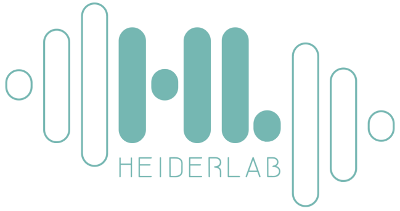CORona Drug InTEractions database
Combined Deep Learning and Molecular Docking Simulations Approach Identifies Potentially Effective FDA Approved Drugs for Repurposing Against SARS-CoV-2
Muhammad U Anwar, Farjad Adnan, Asma Abro, Rayyan A Khan, Asad U Rehman, Muhammad Osama, Saad Javed, Ahmadullah Baig , Muhammad R Shabbir, Muhammad Z Assir
Abstract
The ongoing pandemic of Coronavirus Disease 2019 (COVID-19), the disease caused by the severe acute respiratory syndrome coronavirus 2 (SARS-CoV-2), has posed a serious threat to global public health. Currently no approved drug or vaccine exists against SARS-CoV-2. Drug repurposing, represented as an effective drug discovery strategy from existing drugs, is a time efficient approach to find effective drugs against SARS-CoV-2 in this emergency situation. Both experimental and computational approaches are being employed in drug repurposing with computational approaches becoming increasingly popular and efficient. In this study, we present a robust experimental design combining deep learning with molecular docking experiments to identify most promising candidates from the list of FDA approved drugs that can be repurposed to treat COVID-19. We have employed a deep learning based Drug Target Interaction (DTI) model, called DeepDTA, with few improvements to predict drug-protein binding affinities, represented as KIBA scores, for 2,440 FDA approved and 8,168 investigational drugs against 24 SARS-CoV-2 viral proteins. FDA approved drugs with the highest KIBA scores were selected for molecular docking simulations. We ran docking simulations for 168 selected drugs against 285 total predicted and/or experimentally proven active sites of all 24 SARS-CoV-2 viral proteins. We used a recently published open source AutoDock based high throughput screening platform virtualflow to reduce the time required to run around 50,000 docking simulations. A list of 49 most promising FDA approved drugs with best consensus KIBA scores and AutoDock vina binding affinity values against selected SARS-CoV-2 viral proteins is generated. Most importantly, anidulafungin, velpatasvir, glecaprevir, rifabutin, procaine penicillin G, tadalafil, riboflavin 5’-monophosphate, flavin adenine dinucleotide, terlipressin, desmopressin, elbasvir, oxatomide, enasidenib, edoxaban and selinexor demonstrate highest predicted inhibitory potential against key SARS-CoV-2 viral proteins.
Source: ChemRxiv
Related molecules
Related interactions
| Target | Target affiliation | Drug | Type | Result |
|---|---|---|---|---|
| Target | Target affiliation | Drug | Type | Result |
| Name | Synonyms | Genes | Origin |
|---|---|---|---|
| Name | Synonyms | Genes | Origin |
| Name | Synonyms | PubChem | DrugBank | RCSB PDB | ATC |
|---|---|---|---|---|---|
| Name | Synonyms | PubChem | DrugBank | RCSB PDB | ATC |
| Title | Authors | DOI | Source | Article type | Date |
|---|---|---|---|---|---|
| Title | Authors | DOI | Source | Article type | Date |
| Title | Status | Phases | Start Date | Prim. Comp. Date | Comp. Date | First Post. Date |
|---|---|---|---|---|---|---|
| Title | Status | Phases | Start Date | Prim. Comp. Date | Comp. Date | First Post. Date |
CORDITE (CORona Drug InTEractions database) collects and aggregates data from PubMed, MedRxiv, BioRxiv, ChemRxiv and PMC for SARS-CoV-2. Its main focus is set on drug interactions either addressing viral proteins or human proteins that could be used to treat COVID. It collects and provides up-to-date information on computational predictions, in vitro, as well as in vivo study data.
The information provided is for research only and we cannot guarantee the correctness of the data.
Please contact dominik.heider@uni-muenster.de for further information.
Programmable access
There is an open API for access programmatically to the database. The API will print a JSON output:
- Interactions
https://cordite-api.uni-muenster.de/api.php?action=list&table=interaction
- Targets
https://cordite-api.uni-muenster.de/api.php?action=list&table=target
- Drugs
https://cordite-api.uni-muenster.de/api.php?action=list&table=drug
- Publications
https://cordite-api.uni-muenster.de/api.php?action=list&table=publication
- Clinical trials
https://cordite-api.uni-muenster.de/api.php?action=list&table=clinical_trial

